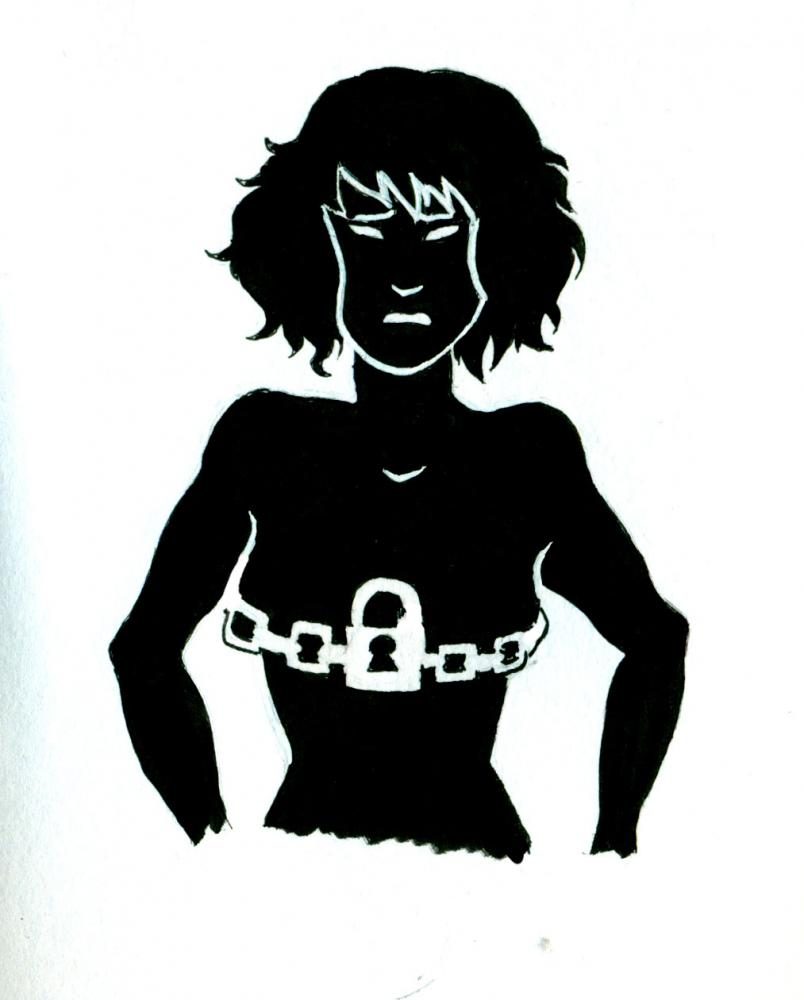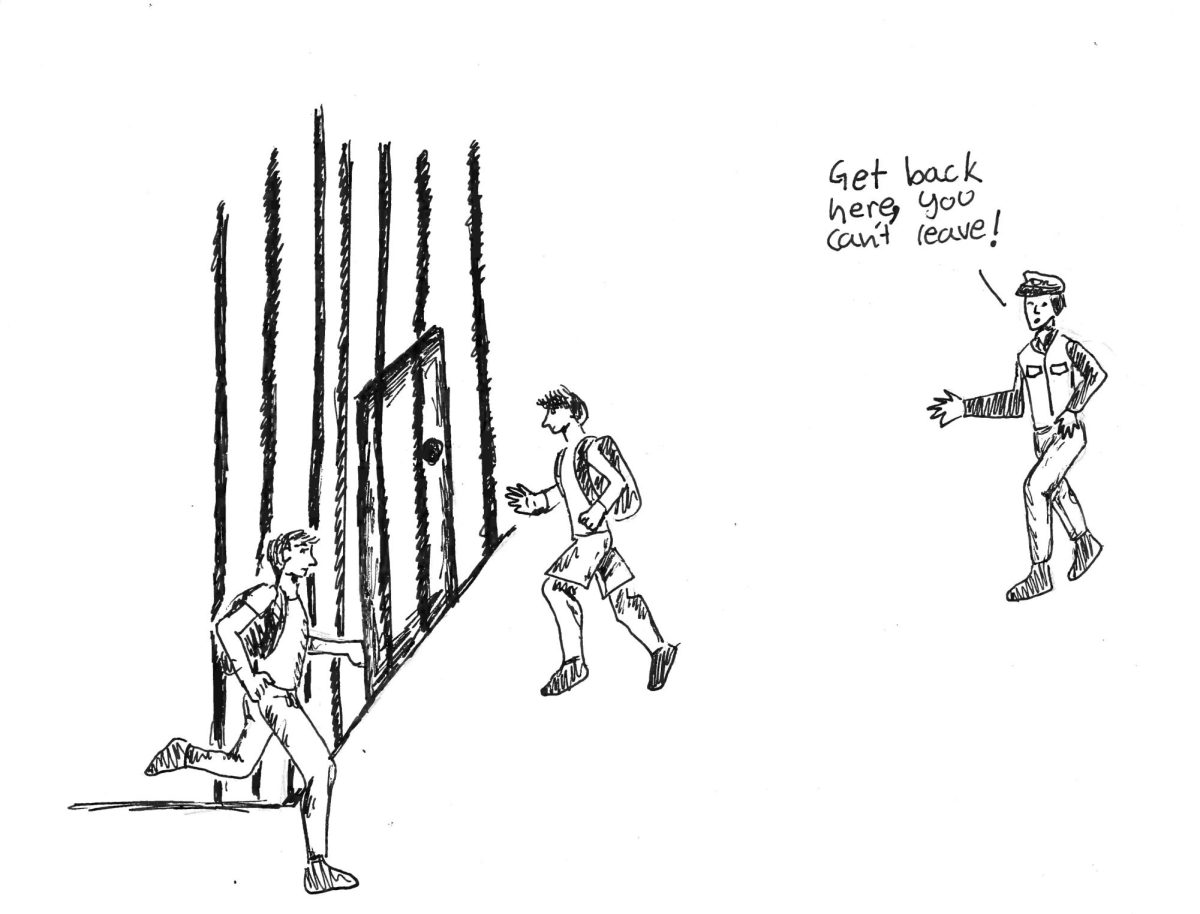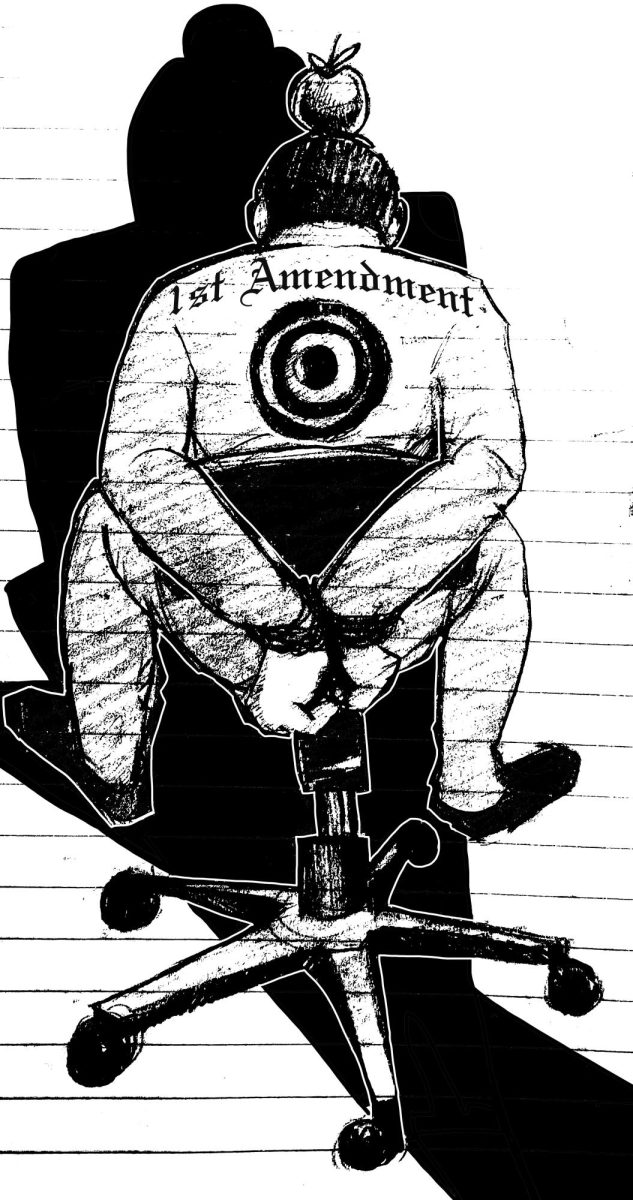What is Rape Culture?
Clarion photo Jacquelyn Johnson
June 4, 2017
TRIGGER WARNING: This article contains mention of and information about sexual assault, violence, and rape that may be triggering to survivors.
Ninety-eight seconds. Every time the clock ticks past this figure, an American is sexually assaulted, according to the Rape, Abuse, and Incest National Network (RAINN). Despite this alarming and deeply disturbing statistic, rape culture deniers continue to persist that sexual assault is not an institutionalized issue that plagues this country. In a society that excuses 99.4 percent of rapists from incarceration (RAINN), glosses over sexual assault as “20 minutes of an action,” and teaches “Don’t get raped” over “Don’t rape,” facts prove otherwise.
The term “rape culture” is often misconstrued to reflect a “traditional” message rather than its modern meaning. In this gender-exclusive and constricting definition, rape culture is defined singularly as a set of beliefs that “encourage male sexual aggression and support violence against women,” according to Emilie Buchwald, author of “Transforming a Rape Culture.” Although this sentiment is not untrue, it is imprecise. This definition disregards a key determinant in understanding the rape culture epidemic: that sexual violence can happen to anyone and can be perpetrated by anyone, regardless of gender identity. Similarly, it is also this defective misinterpretation that rape culture deniers often capitalize on to advance their chauvinistic agendas.
In reality, rape culture is and can be defined in many ways. The basic principle for its foundation is outlined as an institutionalized or personal set of beliefs that promote the idea that one is superior to others (self-sovereignty) and that anyone has an intrinsic right to assert physical or emotional dominance over someone else’s person. This definition recognizes sexual violence and rape as being paramount concerns in society, acknowledges them as intolerable phenomena, and distinguishes that culture norms contribute to negligent reactions by the public in accordance with sexual assault and violence. Essentially, it understands that society does not recognize that no means no.
Rape culture is often confused with patriarchal culture, in that deniers argue that it pits men against women. In addition to ignoring that rape is not confined to the gender binary, this misunderstanding perpetuates the narrative that only women are victims of rape. It is also important to note that while rape and patriarchal culture are separate entities, they go hand-in-hand. By definition, patriarchal culture gives men the excuse to rape women, which indirectly contributes to rape culture and accounts for at least a portion of the one in five women who are victims of rape (Centers for Disease Control and Prevention (CDC)). “The thing is, it’s patriarchy that says that men are stupid and monolithic and unchanging and incapable,” said Chally Kacelnik, “Guardian” columnist. “It’s patriarchy that says that men have animalistic instincts and just can’t stop themselves from harassing and assaulting. It’s patriarchy that says that men can only be attracted by certain qualities, can only have particular kinds of responses, can only experience the world in narrow ways. Feminism holds that men are capable of more—are more than that.” Rape culture and patriarchy may not be identical, but each fuels the other.
Aside from confusion with patriarchal influence, rape culture is grossly misrepresented in many other ways. Most recently, Grant High School social studies teacher David Lickey, made a national bigot of himself over his declarations of rape culture as “hysterical.” “I find assertions of rape culture dubious,” wrote Lickey in a letter distributed to freshman students. “[If] all the men in our community find rape to be a heinous crime, we must therefore deduce that those who commit it are not acting according to the culture’s norms and expectations but violating the culture’s norms.” The problem with this statement is that it is entirely false. A 2015 study conducted by the Violence and Gender journal found that 32 percent of college-aged males said they would have “intentions to force a woman to sexual intercourse” if “nobody would ever know and there wouldn’t be any consequences.” Certainly, in a fictionalized society where all men find rape to be heinous, assertions of patriarchal influences in rape culture are “dubious.” It is unfortunate that all men find rape to be heinous, except for the 98 percent of rapists that are men (Roger Williams University).
According to Lickey, “The best approach to reducing sexual assault is to focus our efforts on enforcement of sexual assault laws and policies, encouraging victims to take advantage of institutional and legal remedies, and educating our young about our laws and conduct codes.” The best approach to eradicating sexual violence should not be to enforce laws after crimes have already been committed. Our approach should be to educate society that rape is a wrong, not a right. Furthermore, it is impossible to rely on the criminal justice system to deliver an equitable conviction for all violators when rape is the most underreported crime by women, but especially by men. Out of every 1000 rapes, less than one third are ever reported to the police. This is because of and not in spite of “dubious” rape culture. When rapists are taught that rape is institutionally tolerated, so are rape victims.
In response to Lickey’s letter and to all other claims that rape culture is not valid, Madison Moskowitz, student sexual assault educator at the University of Oregon spoke out: “Sexual aggression and sexual violence are glorified as paradigms of manliness, [as] manifest destiny over women’s bodies that has plagued this country for too long. I know that rape culture is out there because I am a victim of it.”
It is a difficult task to define rape culture as a concept that recognizes that women are not the only victims of sexual violence in conjunction with the fact that women make up 90 percent of survivors. Rape culture is often recognized as sexual violence and oppression of women by men. This is part of the reality about rape culture, but more precisely, rape culture defies gender boundaries. It is true that rape culture most prominently affects women, but in truth, rape culture affects everyone. We all are victims of rape culture because we all perpetuate it.
Rape culture deniers can argue all they want that rape culture is a “theory” and does not tangibly exist in society. In the end, the facts never lie. With the number of sexual violence cases skyrocketing every year, society cannot ignore that rape is not just tolerated in our culture; it is accepted as the inevitable.
The thing is, rape is not and does not have to be the inevitable. Rape culture starts and ends with you. Recognize it, resist it, and always remember it.
















